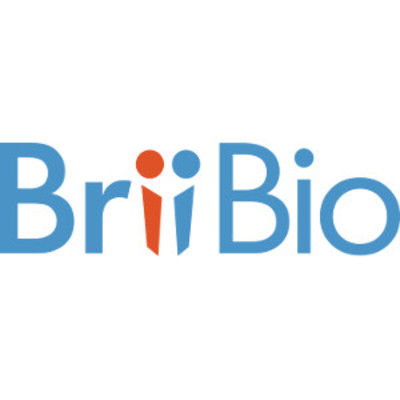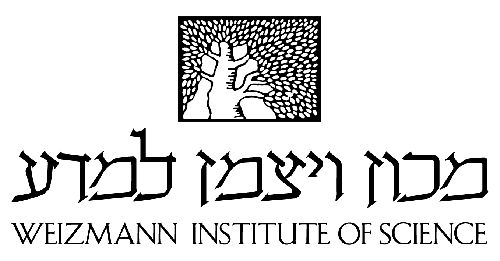预约演示
更新于:2025-09-02

Brii Biosciences Limited
更新于:2025-09-02
概览
标签
感染
呼吸系统疾病
消化系统疾病
小分子化药
单克隆抗体
siRNA
疾病领域得分
一眼洞穿机构专注的疾病领域
暂无数据
技术平台
公司药物应用最多的技术
暂无数据
靶点
公司最常开发的靶点
暂无数据
| 排名前五的药物类型 | 数量 |
|---|---|
| 小分子化药 | 7 |
| 单克隆抗体 | 3 |
| 预防性疫苗 | 2 |
| 重组亚单位疫苗 | 2 |
| 多价疫苗 | 1 |
关联
14
项与 腾盛博药 相关的药物作用机制 SARS-CoV-2 S protein抑制剂 |
在研机构 |
原研机构 |
在研适应症 |
非在研适应症- |
最高研发阶段批准上市 |
首次获批国家/地区 中国 |
首次获批日期2021-12-08 |
作用机制 SARS-CoV-2 S protein抑制剂 [+1] |
在研机构 |
原研机构 |
在研适应症 |
非在研适应症- |
最高研发阶段批准上市 |
首次获批国家/地区 中国 |
首次获批日期2021-12-08 |
靶点- |
作用机制 免疫刺激剂 |
在研机构 |
在研适应症 |
非在研适应症 |
最高研发阶段申请上市 |
首次获批国家/地区 以色列 |
首次获批日期2000-01-01 |
22
项与 腾盛博药 相关的临床试验NCT06650852
A Phase 2 Multicenter, Randomized, Double-Blind Study to Evaluate the Efficacy and Safety of Combination Therapy of BRII-179, BRII-835 and Pegylated Interferon Alpha (PEG-IFNα) in Participants With Chronic Hepatitis B Virus (HBV) Infection (ENHANCE)
This Phase 2, randomized, double-blind study will evaluate the clinical efficacy and safety of the combination therapy of BRII-179, BRII-835, plus PEG-IFNα compared to PEG-IFNα in adult participants with chronic HBV infection without cirrhosis receiving neucloes(t)ide reverse transcriptase inhibitors (NRTIs) as background therapy.
开始日期2024-10-31 |
申办/合作机构 |
CTR20243850
一项评价BRII-179、BRII-835和聚乙二醇干扰素α(PEG-IFNα)联合治疗在慢性乙型肝炎病毒(HBV)感染受试者中有效性和安全性的II期、多中心、随机、双盲研究(ENHANCE研究)
本研究旨在评价BRII-179、BRII-835和PEG-IFNα联合治疗在接受核苷(酸)类逆转录抑制剂作为背景治疗的无肝硬化的慢性HBV成人感染受试者中的临床有效性和安全性。
开始日期2024-10-17 |
申办/合作机构 SciVac Ltd. [+2] |
NCT06491563
A Phase 2 Multicenter, Open-label Study to Investigate the Efficacy and Safety of Regimens Containing BRII-179, BRII-835, and Pegylated Interferon Alpha (PEG-IFNα) for the Treatment of Chronic Hepatitis B Virus (HBV) Infection (ENRICH)
This study will evaluate the efficacy and safety of the regimens containing BRII-179, BRII-835, and PEG-IFNα in adult participants with chronic hepatitis B virus (HBV) infection receiving nucleos(t)ide reverse transcriptase inhibitors (NRTIs) as background therapy.
开始日期2024-08-06 |
申办/合作机构  腾盛博药 腾盛博药 [+1] |
100 项与 腾盛博药 相关的临床结果
登录后查看更多信息
0 项与 腾盛博药 相关的专利(医药)
登录后查看更多信息
1
项与 腾盛博药 相关的文献(医药)2025-07-01·GASTROENTEROLOGY
The Impact of Hepatitis B Surface Antigen Reduction via Small Interfering RNA Treatment on Natural and Vaccine (BRII-179)-Induced Hepatitis B Virus-Specific Humoral and Cellular Immune Responses
Article
作者: Ma, Haiyan ; Tan, Ying ; Lee, Ariel ; Chen, Jieliang ; Bertoletti, Antonio ; Wang, Bing ; Zhu, Chong ; Douglas, Mark W ; Lai-Hung Wong, Grace ; Li, Dong ; Ji, Yun ; Chen, Xiaofei ; Yuen, Man-Fung ; Lv, Jianxiang ; Zhu, Qing ; Le Bert, Nina
BACKGROUND & AIMS:
The impact of hepatitis B surface antigen (HBsAg) reduction from small interfering RNA (siRNA) treatments on hepatitis B virus (HBV)-specific immunity of individuals with chronic hepatitis B (CHB) has not been adequately analyzed in humans. We conducted a phase 2a study treating CHB participants with nine 4-weekly doses of HBV-targeted siRNA elebsiran (BRII-835), either alone (n = 10) or in combination with a virus-like particle-based therapeutic vaccine (BRII-179) containing Pre-S1, Pre-S2, and S antigens, coadministered with (n = 39) or without (n = 41) interferon alfa.
METHODS:
We analyzed longitudinally for 72 weeks virologic, clinical, and immunologic parameters, including HBsAg, alanine aminotransferase, hepatitis B surface antibody (anti-HBs), the neutralizing activity of representative sera, and frequency and cytokine secretion ability of T cells specific for Pre-S1, Pre-S2, and S both directly ex vivo and after in vitro expansion.
RESULTS:
Combination therapy with elebsiran and BRII-179 was well tolerated. Although no sustained HBsAg seroclearance or notable difference in mean HBsAg reduction at the group level was observed, we detected marked heterogeneity in immunologic responses among groups. HBsAg reduction mediated by siRNA alone was associated with minimal HBV-specific immune response recovery. In contrast, combination of elebsiran with BRII-179 induced a significant modification of immune responses demonstrated by anti-HBs antibody production and an expansion of interleukin 2-producing helper T cells specific for Pre-S1/Pre-S2 antigens only. Importantly, anti-HBs antibodies persisted at ≥100 IU/L in ∼40% of the participants for at least 32 weeks after combined treatment. Moreover, the neutralizing ability of the anti-HBs-positive sera was associated with HBsAg reduction.
CONCLUSIONS:
siRNA-induced HBsAg reduction may contribute to the persistence and efficacy of the humoral arm of HBV-specific adaptive immunity in CHB participants receiving the therapeutic vaccine BRII-179.
CLINICALTRIALS:
gov number: NCT04749368.
2,129
项与 腾盛博药 相关的新闻(医药)2025-09-01
·医药笔记
▎Armstrong
2025年8月29日,礼来终止小分子GLP-1受体激动剂Naperiglipron(LY3549492)治疗肥胖、肥胖二饼二型糖尿病的两项二期临床试验,终止原因为商业策略原因。
LY3549492为一款小分子GLP-1受体激动剂。
今年8月26日,礼来宣布小分子GLP-1受体激动剂Orforglipron在第3项三期临床ATTAIN-2获得阳性结果,达到主要终点和所有关键次要终点,礼来准备递交上市申请。
总结
虽然Naperiglipron另有2024年启动的减重二期临床仍在进行中(2026年4月读出主要终点数据),但此次终止两项刚刚启动的二期临床仍然是一个较为清晰的信号,虽然Orforglipron疗效不及预期,礼来仍将重心放在这个分子上,Naperiglipron迭代的可能性并不大。
Armstrong技术全梳理系列
GPRC5D靶点全梳理;
CD40靶点全梳理;
CD47靶点全梳理;
补体靶向药物技术全梳理;
补体药物:眼科治疗的重要方向;
Claudin 6靶点全梳理;
Claudin 18.2靶点全梳理;
靶点冷暖,行业自知;
中国大分子新药研发格局;
被炮轰的“me too”;
佐剂百年史;
胰岛素百年传奇;
CUSBEA:风雨四十载;
中国新药研发的焦虑;
中国生物医药企业的研发竞争;
中国双抗竞争格局;
中国ADC竞争格局;
中国双抗技术全梳理;
中国ADC技术全梳理;
Ambrx技术全梳理;
Vir Biotech技术全梳理;
Immune-Onc技术全梳理;
亘喜生物技术全梳理;
康哲药业技术全梳理;
科济药业技术全梳理;
恺佧生物技术全梳理;
同宜医药技术全梳理;
百奥赛图技术全梳理;
腾盛博药技术全梳理;
创胜集团技术全梳理;
永泰生物技术全梳理;
中国抗体技术全梳理;
德琪医药技术全梳理;
德琪医药技术全梳理2.0;
和铂医药技术全梳理;
荣昌生物技术全梳理;
再鼎医药技术全梳理;
药明生物技术全梳理;
恒瑞医药技术全梳理;
豪森药业技术全梳理;
正大天晴技术全梳理;
吉凯基因技术全梳理;
基石药业技术全梳理;
百济神州技术全梳理;
百济神州技术全梳理第2版;
信达生物技术全梳理;
信达生物技术全梳理第2版;
中山康方技术全梳理;
复宏汉霖技术全梳理;
先声药业技术全梳理;
君实生物技术全梳理;
嘉和生物技术全梳理;
志道生物技术全梳理;
道尔生物技术全梳理;
尚健生物技术全梳理;
康宁杰瑞技术全梳理;
科望医药技术全梳理;
岸迈生物技术全梳理;
礼进生物技术全梳理;
康桥资本技术全梳理;
余国良的抗体药布局;
荃信生物技术全梳理;
安源医药技术全梳理;
三生国健技术全梳理;
仁会生物技术全梳理;
乐普生物技术全梳理;
同润生物技术全梳理;
宜明昂科技术全梳理;
派格生物技术全梳理;
迈威生物技术全梳理;
Momenta技术全梳理;
NGM技术全梳理;
普米斯生物技术全梳理;
普米斯生物技术全梳理2.0;
三叶草生物技术全梳理;
贝达药业抗体药全梳理;
泽璟制药抗体药全梳理;
恒瑞医药抗体药全梳理;
齐鲁制药抗体药全梳理;
石药集团抗体药全梳理;
豪森药业抗体药全梳理;
华海药业抗体药全梳理;
科伦药业抗体药全梳理;
百奥泰技术全梳理;
凡恩世技术全梳理。
临床3期抗体药物偶联物临床2期
2025-08-31
·医药笔记
▎Armstrong
2025年8月31日,甫康药业港股IPO申请获得受理,招股书正式公开。
甫康药业成立于2015年,专注于开发肿瘤领域的突破性疗法,同时兼顾针对病毒感染和衰老相关疾病的创新药。研发管线包括ERGF/HER2/HER4小分子抑制剂、PARP抑制剂、PD-L1/VEGF双抗、PI3K抑制剂、CDK4/9抑制剂、CFB抑制剂、THR-β激动剂、多款双抗ADC等。
甫康药业2024年、2025年上半年研发投入分别为5443万元、2442万元。奈拉替尼2024年销售额为1780万元,2025年上半年销售为3470万元。
甫康药业成立10年来经历多轮融资,2025年3月完成9800万元C轮融资,投后估值30.98亿元,2025年8月完成9000万元C2轮融资,投后估值31.88亿元。
甫康药业最新股权架构如下图,武汉海汇持股3.92%,淄博尚润持股3.64%,乐土生命持股2.62%,无锡药明持股2.31%,九州通持股3.19%等。
PD-L1/VEGF双抗CVL006从外部引进,从研发代码WBP3256来看应为药明生物,授权地区为大中华区。
CVL006采用了高亲和力的差异化设计。
总结
甫康药业同时布局多种药物形式,包括小分子、IO双抗、双抗ADC等,治疗领域覆盖肿瘤、代谢、抗病毒等。
Armstrong技术全梳理系列
GPRC5D靶点全梳理;
CD40靶点全梳理;
CD47靶点全梳理;
补体靶向药物技术全梳理;
补体药物:眼科治疗的重要方向;
Claudin 6靶点全梳理;
Claudin 18.2靶点全梳理;
靶点冷暖,行业自知;
中国大分子新药研发格局;
被炮轰的“me too”;
佐剂百年史;
胰岛素百年传奇;
CUSBEA:风雨四十载;
中国新药研发的焦虑;
中国生物医药企业的研发竞争;
中国双抗竞争格局;
中国ADC竞争格局;
中国双抗技术全梳理;
中国ADC技术全梳理;
Ambrx技术全梳理;
Vir Biotech技术全梳理;
Immune-Onc技术全梳理;
亘喜生物技术全梳理;
康哲药业技术全梳理;
科济药业技术全梳理;
恺佧生物技术全梳理;
同宜医药技术全梳理;
百奥赛图技术全梳理;
腾盛博药技术全梳理;
创胜集团技术全梳理;
永泰生物技术全梳理;
中国抗体技术全梳理;
德琪医药技术全梳理;
德琪医药技术全梳理2.0;
和铂医药技术全梳理;
荣昌生物技术全梳理;
再鼎医药技术全梳理;
药明生物技术全梳理;
恒瑞医药技术全梳理;
豪森药业技术全梳理;
正大天晴技术全梳理;
吉凯基因技术全梳理;
基石药业技术全梳理;
百济神州技术全梳理;
百济神州技术全梳理第2版;
信达生物技术全梳理;
信达生物技术全梳理第2版;
中山康方技术全梳理;
复宏汉霖技术全梳理;
先声药业技术全梳理;
君实生物技术全梳理;
嘉和生物技术全梳理;
志道生物技术全梳理;
道尔生物技术全梳理;
尚健生物技术全梳理;
康宁杰瑞技术全梳理;
科望医药技术全梳理;
岸迈生物技术全梳理;
礼进生物技术全梳理;
康桥资本技术全梳理;
余国良的抗体药布局;
荃信生物技术全梳理;
安源医药技术全梳理;
三生国健技术全梳理;
仁会生物技术全梳理;
乐普生物技术全梳理;
同润生物技术全梳理;
宜明昂科技术全梳理;
派格生物技术全梳理;
迈威生物技术全梳理;
Momenta技术全梳理;
NGM技术全梳理;
普米斯生物技术全梳理;
普米斯生物技术全梳理2.0;
三叶草生物技术全梳理;
贝达药业抗体药全梳理;
泽璟制药抗体药全梳理;
恒瑞医药抗体药全梳理;
齐鲁制药抗体药全梳理;
石药集团抗体药全梳理;
豪森药业抗体药全梳理;
华海药业抗体药全梳理;
科伦药业抗体药全梳理;
百奥泰技术全梳理;
凡恩世技术全梳理。
抗体药物偶联物IPO突破性疗法
2025-08-30
·医药笔记
▎Armstrong
2025年8月29日,BioNTech在Clinicaltrials.gov网站上注册了BNT3212+BNT327治疗晚期实体瘤的全球1/2期临床试验。
该1/2期临床计划国外入组375例晚期实体瘤患者,中国入组281例患者,预计2027年底初步完成。
BNT327为下一代肿瘤免疫治疗药物,为一款PD-L1/VEGF双抗,由BioNTech与百时美施贵宝联合开发。
BNT3212此前的研发代码为PM1300,为普米斯生物研发的EGFR/HER3 ADC。
PD-L1/VEGF+ADC为BioNTech重点布局的方向,此前已有4款ADC推进到临床阶段,均来自中国企业的授权,包括映恩生物3款单靶点ADC和宜联生物1款HER3 ADC。此次新启动临床试验标志着PD-L1/VEGF+双抗ADC联合治疗也推进到临床阶段。
总结
百利天恒的EGFR/HER3 ADC已经申报上市并拟纳入优先审评,合作伙伴百时美施贵宝已经启动了3项全球2/3期临床试验。由于BL-B01D1血液毒性较大,存在迭代的空间,更多企业在开发新一代的EGFR/HER3 ADC,映恩生物授权给Avenzo、BioNTech收购普米斯获得PM1300,这两款EGFR/HER3 ADC也推进到临床阶段。
Armstrong技术全梳理系列
GPRC5D靶点全梳理;
CD40靶点全梳理;
CD47靶点全梳理;
补体靶向药物技术全梳理;
补体药物:眼科治疗的重要方向;
Claudin 6靶点全梳理;
Claudin 18.2靶点全梳理;
靶点冷暖,行业自知;
中国大分子新药研发格局;
被炮轰的“me too”;
佐剂百年史;
胰岛素百年传奇;
CUSBEA:风雨四十载;
中国新药研发的焦虑;
中国生物医药企业的研发竞争;
中国双抗竞争格局;
中国ADC竞争格局;
中国双抗技术全梳理;
中国ADC技术全梳理;
Ambrx技术全梳理;
Vir Biotech技术全梳理;
Immune-Onc技术全梳理;
亘喜生物技术全梳理;
康哲药业技术全梳理;
科济药业技术全梳理;
恺佧生物技术全梳理;
同宜医药技术全梳理;
百奥赛图技术全梳理;
腾盛博药技术全梳理;
创胜集团技术全梳理;
永泰生物技术全梳理;
中国抗体技术全梳理;
德琪医药技术全梳理;
德琪医药技术全梳理2.0;
和铂医药技术全梳理;
荣昌生物技术全梳理;
再鼎医药技术全梳理;
药明生物技术全梳理;
恒瑞医药技术全梳理;
豪森药业技术全梳理;
正大天晴技术全梳理;
吉凯基因技术全梳理;
基石药业技术全梳理;
百济神州技术全梳理;
百济神州技术全梳理第2版;
信达生物技术全梳理;
信达生物技术全梳理第2版;
中山康方技术全梳理;
复宏汉霖技术全梳理;
先声药业技术全梳理;
君实生物技术全梳理;
嘉和生物技术全梳理;
志道生物技术全梳理;
道尔生物技术全梳理;
尚健生物技术全梳理;
康宁杰瑞技术全梳理;
科望医药技术全梳理;
岸迈生物技术全梳理;
礼进生物技术全梳理;
康桥资本技术全梳理;
余国良的抗体药布局;
荃信生物技术全梳理;
安源医药技术全梳理;
三生国健技术全梳理;
仁会生物技术全梳理;
乐普生物技术全梳理;
同润生物技术全梳理;
宜明昂科技术全梳理;
派格生物技术全梳理;
迈威生物技术全梳理;
Momenta技术全梳理;
NGM技术全梳理;
普米斯生物技术全梳理;
普米斯生物技术全梳理2.0;
三叶草生物技术全梳理;
贝达药业抗体药全梳理;
泽璟制药抗体药全梳理;
恒瑞医药抗体药全梳理;
齐鲁制药抗体药全梳理;
石药集团抗体药全梳理;
豪森药业抗体药全梳理;
华海药业抗体药全梳理;
科伦药业抗体药全梳理;
百奥泰技术全梳理;
凡恩世技术全梳理。
抗体药物偶联物优先审批并购申请上市引进/卖出
100 项与 腾盛博药 相关的药物交易
登录后查看更多信息
100 项与 腾盛博药 相关的转化医学
登录后查看更多信息
组织架构
使用我们的机构树数据加速您的研究。
登录
或

管线布局
2026年02月28日管线快照
管线布局中药物为当前组织机构及其子机构作为药物机构进行统计,早期临床1期并入临床1期,临床1/2期并入临床2期,临床2/3期并入临床3期
临床1期
5
5
临床2期
临床3期
1
1
申请上市
批准上市
2
4
其他
登录后查看更多信息
当前项目
| 药物(靶点) | 适应症 | 全球最高研发状态 |
|---|---|---|
安巴韦单抗 ( SARS-CoV-2 S protein ) | 新型冠状病毒感染 更多 | 批准上市 |
罗米司韦单抗 ( SARS-CoV-2 S protein ) | 新型冠状病毒感染 更多 | 批准上市 |
Hepatitis B vaccine recombinant(Weizmann Institute of Science) | 乙型肝炎 更多 | 申请上市 |
Lufotrelvir ( SARS-CoV-2 3CLpro ) | 新型冠状病毒感染 更多 | 临床3期 |
Elebsiran ( L-HBsAg ) | 慢性乙型肝炎 更多 | 临床2期 |
登录后查看更多信息
药物交易
使用我们的药物交易数据加速您的研究。
登录
或

转化医学
使用我们的转化医学数据加速您的研究。
登录
或

营收
使用 Synapse 探索超过 36 万个组织的财务状况。
登录
或

科研基金(NIH)
访问超过 200 万项资助和基金信息,以提升您的研究之旅。
登录
或

投资
深入了解从初创企业到成熟企业的最新公司投资动态。
登录
或

融资
发掘融资趋势以验证和推进您的投资机会。
登录
或

生物医药百科问答
全新生物医药AI Agent 覆盖科研全链路,让突破性发现快人一步
立即开始免费试用!
智慧芽新药情报库是智慧芽专为生命科学人士构建的基于AI的创新药情报平台,助您全方位提升您的研发与决策效率。
立即开始数据试用!
智慧芽新药库数据也通过智慧芽数据服务平台,以API或者数据包形式对外开放,助您更加充分利用智慧芽新药情报信息。
生物序列数据库
生物药研发创新
免费使用
化学结构数据库
小分子化药研发创新
免费使用

